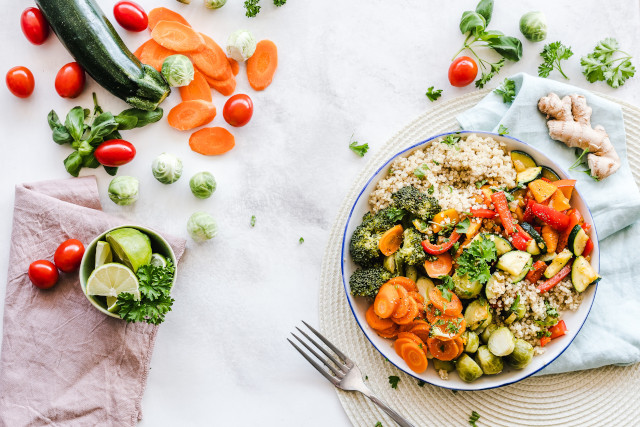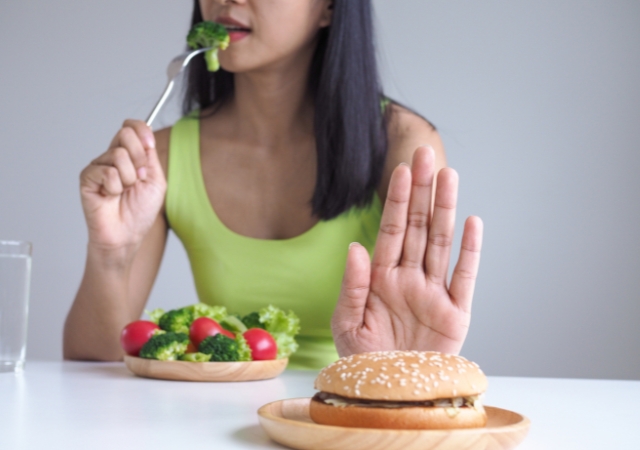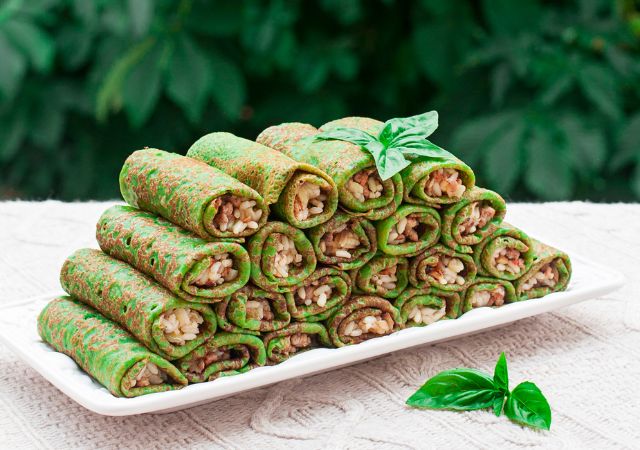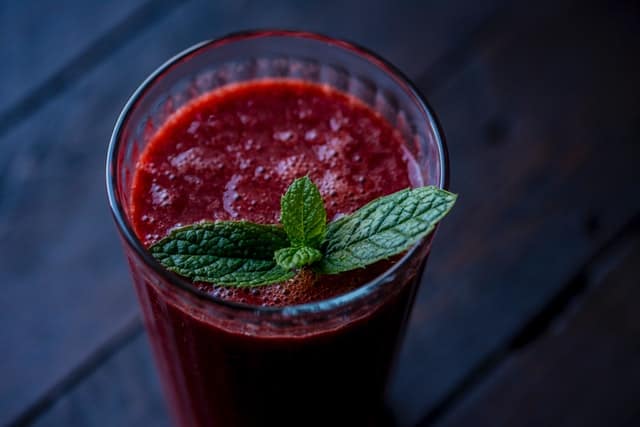
It is like a bomb full of nutrients that are very important for our body. Many people are unaware of the health benefits of red beet. Beetroot is experiencing a real renaissance in our kitchens these days, and for people with diabetes, they can be accommodating, but if you overdo it, you can expect some unpleasant side effects.
Contents
An increased concentration of vegetables without pesticides is indeed good for your health, so be aware of where you buy and from. Many studies show that the consumption of red beets reduces the risk of obesity, diabetes, heart disease and results in a healthy complexion, strong hair, a surge of energy, and weight loss.
Beets are not a forbidden food, but there are some nuances of their use and limitations that you should read carefully and not forget. It turns out that this vegetable can even be used to treat type 2 diabetes.
Minerals and Vitamins in Beet
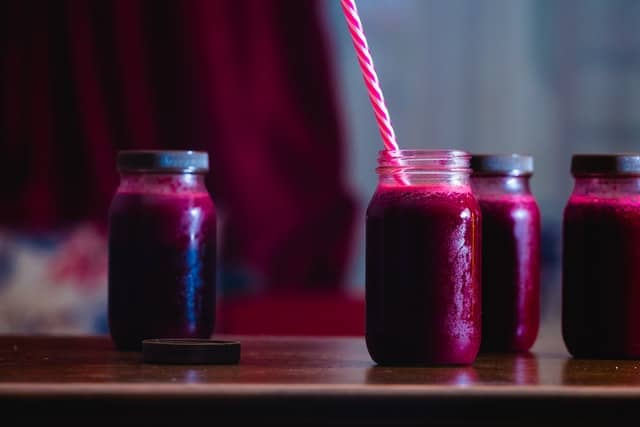
It is the perfect source of protein, sugar, and all sorts of essential nutrients for the body. There are antibacterial, antifungal, and antiparasitic substances in beets.
Apart from this, beet juice is also organic acid, mainly malic acid, citric acid, tartaric acid, and oxalic acid. Beet juice also contains polyphenols, carotenoids, and glycosides, including the very valuable betanin, the red pigment of beets. Beet juice is also a source of fiber.
- Vitamins and minerals found in beets are:
- B vitamins, including vitamin B9 (folic acid),
- vitamins C, A, E, and K,
- iron,
- potassium,
- magnesium,
- calcium,
- phosphorus,
- copper,
- chlorine,
- fluorine,
- zinc,
- boron,
- lithium,
- molybdenum.
An increased concentration of vegetables without pesticides is indeed good for your health, so be aware of where you buy and from. Many studies show that the consumption of red beets reduces the risk of obesity, diabetes, heart disease and results in a healthy complexion, strong hair, a surge of energy, and weight loss.
Beets are not a forbidden food, but there are some nuances of their use and limitations that you should read carefully and not forget. It turns out that this vegetable can even be used to treat type 2 diabetes.
Glycemic Index
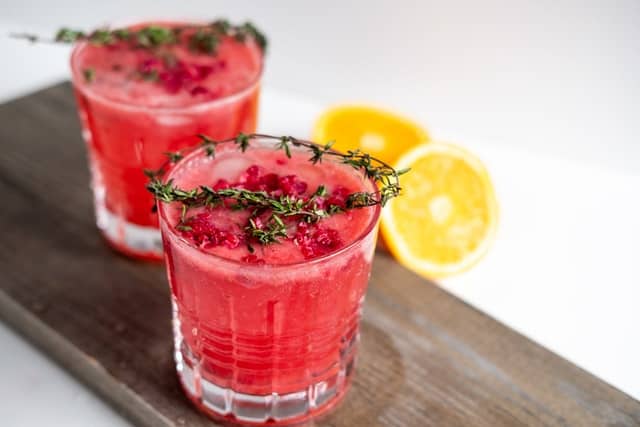
The glycemic index measures a food's ability to raise blood sugar levels. However, the glycemic index of cooked beets is twice that of raw beets. For people who have diabetes, all foods are traditionally divided into three zones: green, yellow, and red.
Glycemic Index Dependence. The higher the glycemic index, the more powerfully and sharply the consumed product raises sugar, that is, the more harmful to the diabetic. As for beets, their glycemic index is :
raw GI=30,
cooked GI=65.
Thus, raw beets enter the "green" zone, decompose slowly in the body, and practically do not cause spikes in blood sugar. Cooked beets are at the very top of the "yellow" zone (because foods with a glycemic index of 70 and higher fall into the "red" area). It breaks down in the body much faster than raw and can cause blood sugar spikes.
Beet Juice Affects Brain Oxygenation
Moreover, researchers at Wake Forest University have found that drinking beet juice helps oxygenate the brain, slowing the development of dementia in the elderly. Red vegetables also contain the antioxidant alpha-lipoic acid, which can help lower blood sugar levels and increase insulin sensitivity, helping to treat diabetes and insulin resistance.
Beets Have Been Shown to Improve Exercise Performance
Regularly drinking beet juice has been shown to oxygenate the muscles during exercise, allowing you to exercise for longer. This health property of beet may prove particularly useful for people suffering from cardiovascular diseases and respiratory or cardio-metabolic diseases, which make exercise even more difficult. And can be an ideal isotonic after training.
Properties
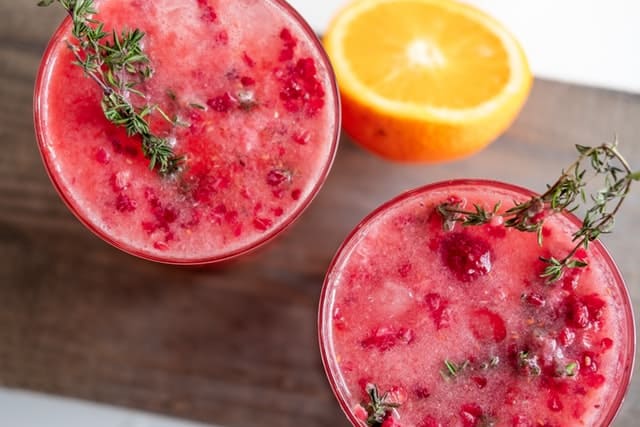
Properties of beet juice for the human body are invaluable. Due to its rich composition, beet juice is especially recommended for people suffering from anemia.
The presence of iron and B vitamins has a beneficial effect on the circulatory system and the processes of red blood cell formation. Substances contained in beet juice lower blood pressure and positively impact cholesterol levels.
The lumen of blood vessels is strengthened, which is particularly important in preventing atherosclerosis. They reduce the risk of cardiovascular diseases, including stroke, ischemic heart disease, and myocardial infarction.
Lowering Blood Pressure
According to research, eating beets or drinking beet juice may benefit people with high blood pressure. High blood pressure is standard among people with diabetes.
The presence of nitrates in beet juice is responsible for its blood-pressure-lowering effects. These nitrates improve the ability of blood vessels to dilate, promoting blood flow.
Antioxidant, Antiseptic and Anti-inflammatory Properties
owes its antioxidant and anti-inflammatory properties to betanin contained in it. For this reason, it is recommended for all infections (bacterial and viral) and inflammatory conditions. Beet juice is especially recommended for coughs (both dry and wet).
It alleviates cough-related ailments, strengthens the immune system, and improves the body's condition, including the appearance of the skin. Regularly drinking beet juice slows down the body's aging process.
Beets Important for Pregnant Women
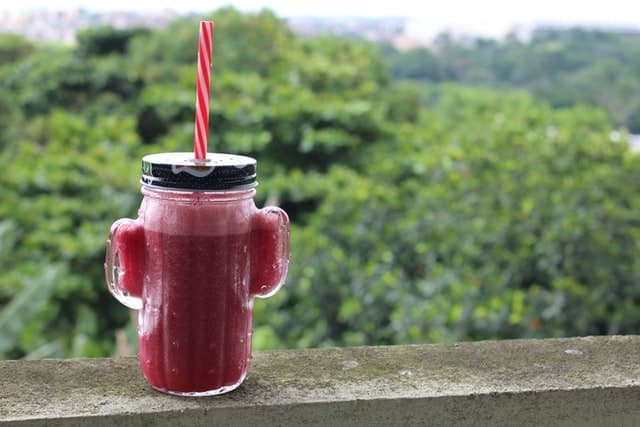
The nutrients in beets also include folic acid, manganese, thiamin, riboflavin, vitamin B-6, pantothenic acid, betaine, magnesium, phosphorus, potassium, zinc, copper, and selenium. The array of ingredients contained in beets will add to the health of pregnant women, in particular, those struggling with infertility and patients at high risk of cancer.
Due to the presence of folic acid, red beet juice is recommended for pregnant women because it positively affects the state of their health and the development of the child (especially the development of its nervous system). Beet juice in pregnancy also brings relief to women who struggle with constipation and heartburn. In addition, beets in pregnancy are especially recommended for women who work with anemia.
Beetroot Juice for Weight Loss and Regulates the Digestive System
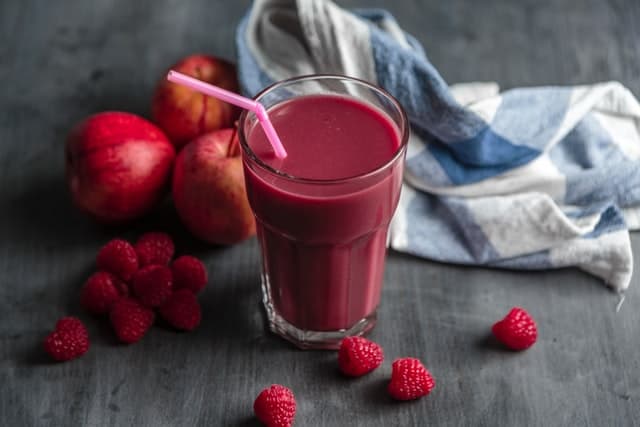
Beet juice is also worth consuming during weight loss. It improves metabolism and helps cleanse the body of harmful products formed during metabolic processes. In addition, it is low in calories - 100 ml of beet juice has only 45 kcal. The beet has cleansing properties thanks to the presence of dietary fiber - its content makes it possible to forget about the feeling of hunger for a long time after drinking a glass of beet juice.
Beets contain a large amount of dietary fiber, which helps regulate the work of the digestive system. They also contain choline, which has a wide range of applications - it facilitates sleep, muscle work, memory processes, and learning new things. Choline also maintains a proper structure of cell membranes, enables transmission of nerve impulses, aids fat absorption, and reduces chronic inflammation.
Number and Frequency of Use
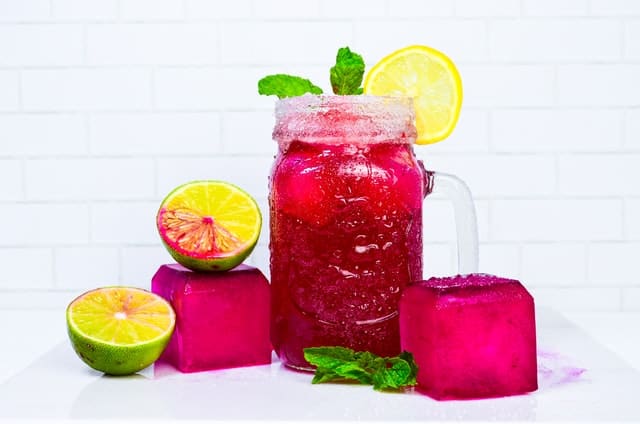
Use It is impossible to control type 2 diabetes without a proper diet. As already mentioned, doctors recommend that type 2 diabetics eat no more than 150 g of raw beets per day, 100-120 g cooked, and drink no more than 200 ml of beet juice (divided into four doses of 50 ml each). Although it is not as strict as type 1 diabetes, it is still necessary to know when to stop using any product.
Frequency of consumption of beets by diabetics, here, too, doctors' recommendations vary depending on the type of disease. In type 1 diabetes, these doses should be reduced by about half. Insulin-dependent diabetics should eat beets as little as possible, closely monitoring the body's reaction.
Type 2 diabetics are much better off. Doctors allow the inclusion of beets in the daily diet while carefully following the above restrictions. Besides raising blood sugar levels, beets have many other side effects. Read the rules and contraindications carefully before consuming any red root vegetable. Contraindications Often, you may notice diabetes among the contraindications to beets. But we've already figured out that you don't have to completely deprive yourself of the red vegetable.
Beets are contraindicated in people with chronic diarrhea, duodenal ulcers, and other intestinal disorders due to their strong laxative effect. It is enough to follow the recommendations of endocrinologists. And what about the other contraindications? Beets (incredibly raw) should not be used for gastritis, urolithiasis, and different kidney diseases...
The increased acidity of the stomach does not allow you to add raw vegetables to dishes, but they can be replaced by cooking. Of course, even with individual intolerance of the components of the red root vegetable, it should not be used in any case.
What Does Beetroot Juice Help With
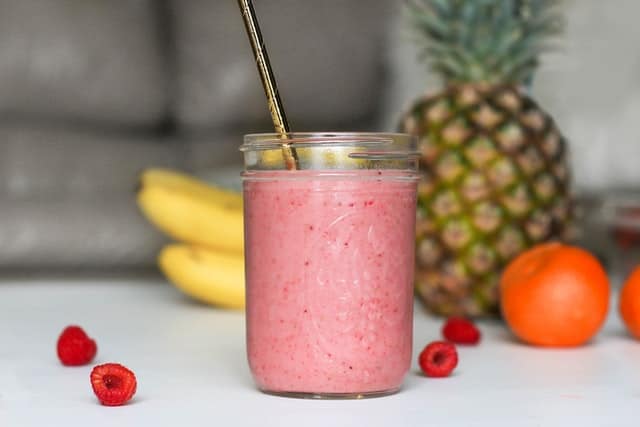
Beet juice owes its nervous system-supporting properties to the B vitamins. In beets,, there are also nitrates, which are transformed into nitric oxide in metabolic processes. This improves blood supply to the muscles and enhances the body's efficiency, which is especially useful for active people in sports.
In addition, beet juice:
- lowers cholesterol levels in the blood,
- protects the liver from toxins,
- prevents strokes and myocardial infarctions,
- relieves emotional tension, symptoms of neurosis and depression,
- regulates the sleep cycle,
- supports concentration,
- improves body endurance,
- is helpful during menopause - eliminates hot flashes and migraine pain,
- The glycemic index of beet is 30. Drinking beet juice is recommended for diabetics because it restores the acid-base balance in the body disturbed in the course of diabetes,
- It works similarly to viagra - the boron contained in beets is closely related to producing sex hormones.
How To Drink Beet Juice?
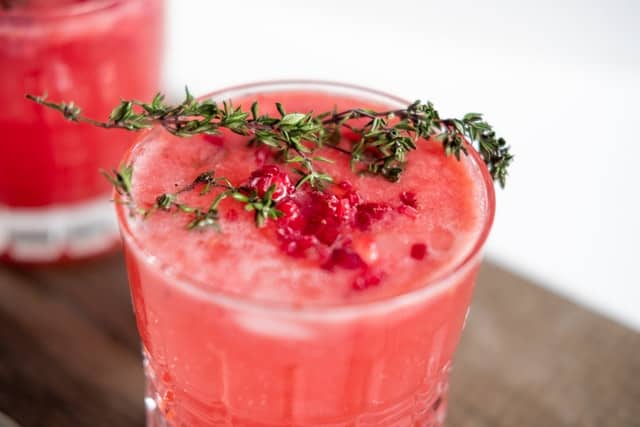
After preparing the juice, many people wonder how to drink beet juice? It can be consumed directly from the refrigerator, in undiluted form.
If someone does not like this form, he can dilute it with other vegetable or fruit juice or water according to the following scheme:
- on the first day, drink about ⅕ amount of beet juice with ⅘ amount of water,
- On the second day, drink ⅖ of the beet juice with ⅗ of the water,
- On the third day, drink more beet juice, and on each following day, based on the observation
of your own body, increase the amount of beet juice while decreasing the amount of water.
Contraindications To Drinking Beet Juice
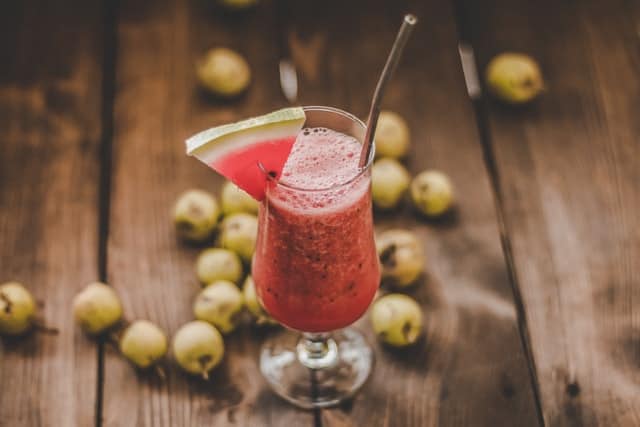
Although they are very healthy, Beet juice can not be consumed by everyone without exception. It is contraindicated in rheumatism, kidney stones, and gout since Beets contain oxalates, which may aggravate the symptoms of these diseases.
The juice should not be consumed by people with low blood pressure because, after an extended period, it can cause hypotension. As with all foods, beet juice should be consumed in moderation and with common sense, but there are no documented contraindications to drinking it in any quantity, even daily.
If in doubt about your dietary choices, consult your nutritionist, and always remember to check your blood glucose levels.


